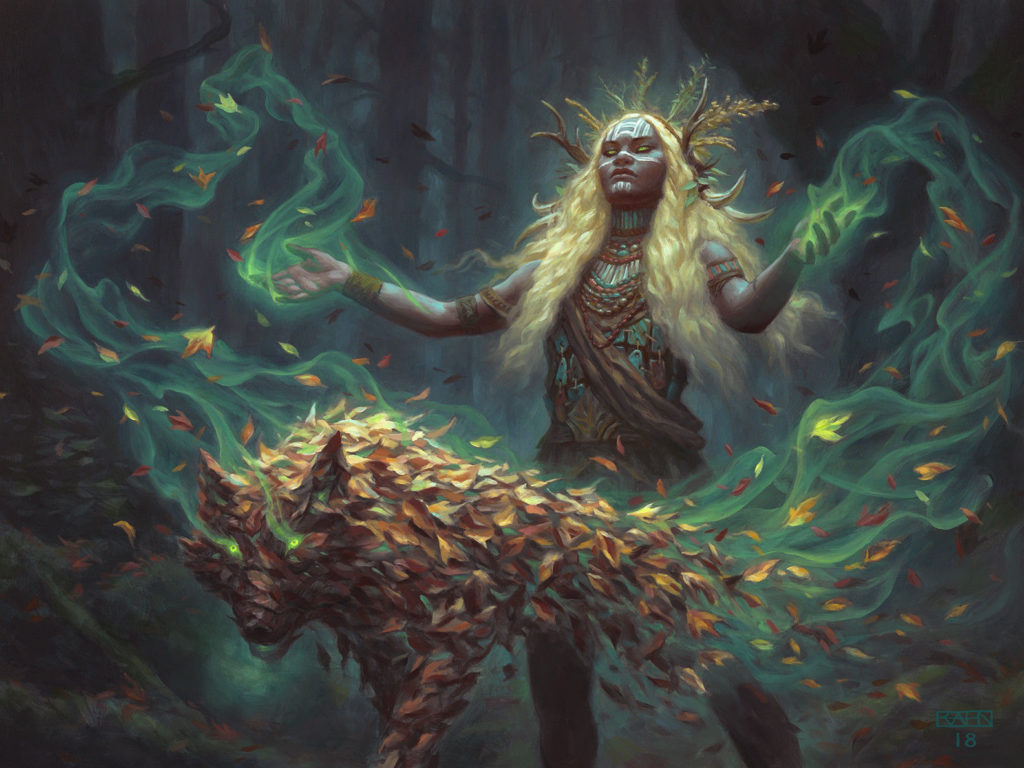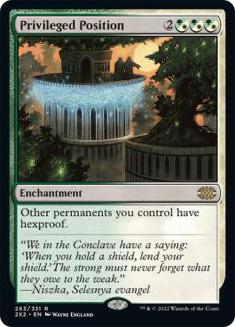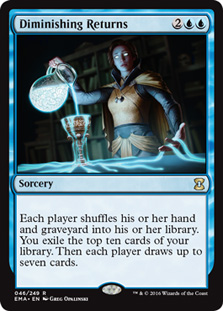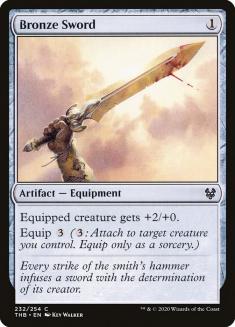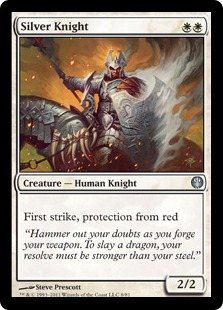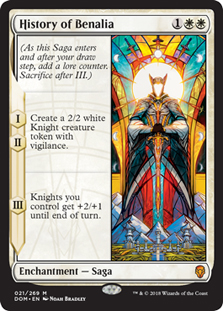We appear to be in the middle of a culturally transformative event, and it’s hard to know what the world will look like on the other side. In a lot of industries, huge portions of entities involved in the industry are going to go out of business, and it’s hard to predict exactly how they’ll be replaced once everything opens up again and the world returns to normal.
In the short term, I imagine this will create a lot of opportunities, and in the medium term, I imagine things will largely return to normal. This is to say that while it’s possible that a lot of restaurants, airlines, or whatever else might go out of business, their business models will still be sound – they’re still using infrastructure that exists or that we know how to create to provide things people want, and one way or another, people will find ways to charge each other for these services.
Before we reach that point, there might be a rebuilding period where things don’t quite work the way we’re used to. Ultimately, it’s likely that all of this will affect Magic and Magic tournaments in some way, but it’s not precisely clear how and to what extent. Regardless, high-level paper play has been disrupted enough that I don’t think it’s realistic to expect that Wizards of the Coast (WotC) is held to much of what they’d previously announced about how competitive Magic has functioned. Maybe they’ll choose to keep doing everything the way they’ve planned, but it seems hard not to see this as at least an opportunity to reconsider.
Given that, I’d like to weigh in and offer my perspective on the direction Magic Organized Play (OP) has taken and what I consider valuable moving forward.
First, I’d like to acknowledge my own bias and the position I’m coming from. I’m likely among the players most personally negatively affected, when comparing my place in the old system to my place (or lack thereof) in the new system. I was personally successful in the old system and it worked well for me. It played to my strengths and served my preferences.
Where others frequently complained about the pressure to attend Grand Prix (GPs) and the accompanying cost and stress, I’ve always enjoyed the tournaments, enjoyed travel and seeing people, and wanted to play as much paper Magic as I could, while thinking that other people’s financial assessment of the value prospect of GPs was a little off. Maybe I won a little more or spent a little less on average, but more importantly, I valued the experiences for their “intangibles” (networking, exposure, good times, learning from people, etc.) and felt that each trip was a beneficial opportunity rather than a cost to stay afloat in the competitive scene.
Hold on. If you haven’t been closely aware of both systems, it might not be obvious why I’m talking about how I perceived and experienced GPs. Let me back up a little and go over the differences between the systems I’m talking about.
Old System:
- Pro Levels acquired through earning different levels of Pro Points, which were acquired through GPs and Pro Tours (PTs).
- Worlds invites to players who win PTs and acquire the most Pro Points.
New System:
- Magic Pro League (MPL) and Rivals League earned and maintained through various obscure systems involving points earned from major tournaments that do not include GPs and do involve WotC discretion.
- Major tournaments using Arena.
One of the major sticking points about the professional Magic circuit had always been GPs. Some players, generally those with more external commitments, objected to how important GPs were and felt like they were a burden placed on pros – expenses that they needed to keep up with to maintain their status. Those players generally wanted only PTs to matter, so that the best players could get benefits for consistent success without the cost of needing to play so much Magic.
Personally, I saw it differently and believe GPs were essential to competitive and professional Magic.
As I see it, without GPs, there simply aren’t enough matches played in a year to account for the variance that exists in Magic. The result is that the system is very “spiky” in that it rewards running hot in a particular tournament or two over sustained success. The nature of prioritizing top finishes with rapidly increasing point payouts already did this to some extent, but this is a completely different scale.
More importantly, GPs offered players agency. With everyone playing in the exact same number of events, there’s very little you can do to try harder than the competition. Yes, you can put more effort into preparation, but that has some pretty sharp diminishing returns.
In the past, a player who had a good event could decide to go for it and travel to tournaments they wouldn’t have otherwise, and substantially increase their chances of obtaining higher levels. More importantly, there were a variety of different thresholds they could reach, such that even if they fell short of a goal, their additional efforts might let them hit a lower level that’s still better than they would have had if they hadn’t put in the extra effort.
This agency is how the PT worked to channel aspirations into greater involvement and reward dedication. Without this, it feels to me like Magic offers periodic lotteries that I can hope to spike.
People ask me if I’m “trying to make Rivals” and I’ve just taken to replying that that’s not a thing. Like, what would it even mean? It’s not like there are steps I can take that I think give me an appreciable chance to get into the Rivals League, and I’m not saying this because I don’t think I can play at the top level. I do think that, after a year or so of disengagement due to being disappointed with OP, I may not be at my peak relative to other players, but a lack of confidence in my ability to succeed at tournaments has never particularly held me back. Here, the issue is that I’m skeptical that the best player in the world has an especially high chance of making it to Rivals or the MPL.
There are no stepping stones, no middle grounds like Bronze and Silver pro levels that help with getting extra invites (though fractional invites at GPs do a little of this). Too many things need to go right to qualify for a Regional Players Tour and then use that to qualify for a Players Tour Final, and then do well there, and then do that repeatedly.
More to the point, even if I’m wrong and my chances of making it to Rivals are higher than I think, it doesn’t change the fact that I don’t feel like I have agency. I can’t take extra steps or put in extra effort to try to do that. “Trying to make Rivals” looks the same as ignoring Rivals and trying to do well in and qualify for the Regional PTs. Maybe that’s enough; maybe all that matters is that I care about qualifying for those. Though, in practice, I’ve found myself not caring as much as I expected. I planned to try to qualify for them at roughly every opportunity, but when those opportunities happen online, I don’t actually care enough about the Regional PTs to play online. I’m a paper player. I’ll play some Leagues on Magic Online to test, but I don’t enjoy tournaments on Magic Online.
Why do I care less about qualifying for Regional PTs than I expected? Well, when they were announced, there was some question about how much they’d feel like old PTs, and the answer turned out to be, “a little.” They are large, high-stakes tournaments against good players, but they don’t have the history and importance that the old PTs did. For the last decade, my top priority had been to earn the PT Top 8 finishes necessary to earn greater consideration for the PT Hall of Fame, and these events don’t help with that. In fact, at this point, I’ve basically accepted failure at something that I’d previously valued very highly and taken as something I was sure was just a matter of time. I’m not even terribly sad about that. Accepting failure is… interesting, and I think there’s value in just taking it as it is and moving on.
These events feel different enough that a Top 8 finish isn’t considered to be the same thing as a Top 8 finish at a PT. These invite to PT Finals, which you might expect to be more prestigious than an old PT, but I’m not even sure that will be the case. They’re smaller tournaments, which means it’s easier for a given competitor to Top 8. That might not matter, because it was harder to earn the right to even play, but because the MPL is invited to play regardless of their success in another tournament, this tournament is appreciably easier for them to Top 8 than an old PT, meaning that if this were given the same weight as old PTs, MPL members would develop stats that would outshine the old stats that we try to preserve as benchmarks. These might have the same result as the small, elite Worlds tournaments, where even though the events were prestigious and hard to qualify for, players ultimately decided that a Top 8 or even a Top 4 didn’t have the weight of a PT Top 8 because it wasn’t as hard once you got there.
The new system just doesn’t really offer tournaments that are directly comparable to the old system, which throws away a lot of history, a sentiment well-presented in, for example, Jeff Cunningham‘s latest article.
Jeff talks about how the compelling aspect of the Pro Tour had always been the way that it creates and showcases a metagame, and that the transition to focusing on the players rather than the metagame has been a mistake. I strongly agree with this. The metagame is what makes high-level Magic personally interesting and meaningful to players outside of the tournament, not the personalities. Individual players can make a name for themselves through success and can make themselves valuable for other players to follow through offering assistance and ideas, or just being interesting or entertaining presences online. However, I think the tournaments best engage with their audiences when they focus on gameplay and leave personal branding to the players involved outside of the tournament.
Personally, I feel like Magic has been going through an awkward adolescent phase where it tries to fit in with all the other cool games and loses sight of its own unique strengths and character. Magic wasn’t created to be an esport because that wasn’t a thing when Magic was created, and it doesn’t lend itself to that as well as games that were created for it do. I’m not sure that that’s a problem, if Magic learns to lean into its strengths.
WotC has launched programs to help what it calls “content creators,” but it doesn’t use that phrase in its literal meaning. I’m creating content at this exact moment, but these programs don’t care at all about written content, podcasts, community building, or anything else that happens outside of twitch.tv. WotC has become obsessed with streaming because they see other games succeeding there, and ignore Magic’s unique strengths. Magic’s written content, from strategy articles, to Reddit posts, to blogs, to Discord communities, has, in my mind, always been one of its unique strengths. As a Magic player, when I tried to learn about Pokemon Go years ago, I was disgusted by how hard it was to find any real good information on game mechanics and strategy, and all the ridiculously unhelpful clickbait nonsense I had to wade through to find even basic information. Magic content is rich and varied, and to see all of that ignored as WotC’s obsessive focus with increasing Magic’s Twitch presence reaches into competitive Magic through discretionary invites is disappointing.
Another issue with the current system is that it acknowledges how swingy a year’s results of PTs are, and that without the ability to put extra effort into maintaining status, the swings would be too great for players in the MPL to plan their future around competitive Magic. As a result, it uses a relegation system whose purpose is to protect the MPL players’ position so that they can have largely the same players from year to year to build stars, with enough churn to keep things fresh and let players feel like they can make it. However, to my mind, this relegation system currently creates too much of an artificial ceiling on players outside of the MPL, and makes advancement too difficult, particularly in conjunction with the lack of meaningful stepping stones below Rivals.
So what would I change?
To be honest, I’m not sure what the best system looks like. While I think an exact return to the pre-MPL days would be a substantial improvement, it doesn’t check all the boxes I want and doesn’t account for Arena.
Speaking of boxes, here’s what I’d like to see a system prioritize and accomplish:
- I think there should be tournaments that are ideally called Pro Tours that are sufficiently comparable to old Pro Tours that they’re statistically compatible with Magic’s old Pro Tours. This is arguably the least important. It’s nice to have all this history to tie into, but ultimately, Magic needs to be able to serve the current player base and current needs, and I understand that at some point, history may hold it back, and it needs to be able to let go of that. Currently, I suspect that Magic’s history does more good than harm for paper Magic.
- The system needs to take enough matches into account to level out the variance in Magic. This could happen by holding more tournaments per year, using more than one year’s worth of tournaments at a time, possibly holding tournaments with more matches, or maybe some other solution I haven’t thought of that addresses this issue.
- It should offer players a sense of agency and ability to modulate their level of involvement to target different goals, and there should be goals at different levels that players can achieve such that players who fall a little short still have something to show for it.
- It should avoid any kind of artificial ceiling. If someone has a breakout year, they shouldn’t be held back the way that the current system basically forces players to go through Rivals to get to the MPL. If someone does better than most players at the top, they should be able to reach the top.
- Paper Magic and Arena should be as distinct as possible. They have very different experiences and lately there’s been very little overlap in the formats people play in paper and on Arena, so they’ve very close to just being different games. WotC should support both and it’s okay to have a little crossover, but a player’s success in one shouldn’t require engaging with the other, and that applies strongly in both directions.
- I suspect that WotC’s discretionary support for certain players should be removed from the system. This one is tricky. Magic’s had a real diversity problem perpetuated by the cycle of the vary narrow range of representation offered in competitive Magic, and there’s a lot of value to changing that, and I think efforts so far have already been meaningful and valuable, and haven’t gone far enough. Given that, discontinuing this seems like a mistake, and it very well could be. However, I have concerns about perceptions and realities of competitive integrity, and I think there are other, better ways to accomplish this goal. I think highlighting, promoting, showcasing, and advertising for streamers and other content creators from underrepresented groups is valuable and should continue, and I think holding promotional tournaments that invite anyone WotC would like to promote is also reasonable, but I think those events shouldn’t be part of the large competitive structure.
- Finally, the biggest point I’ve always wanted to see corrected: Winning or otherwise performing well at a tournament should never prevent you from playing in another tournament. Previously, when a player qualified for a tournament though a qualifying tournament, they wouldn’t be allowed to play in similar qualifiers, because allowing them to risked the competitive integrity of the event because they’d have different incentives from the other competitors. I don’t think we should simply return to the old system, but allow qualified players to play in qualifiers, because the problems that creates are real. Instead, a system should be built such that a players incentives aren’t meaningfully changed if they’ve succeeded previously, for example, instead of holding qualifiers, tournaments could award variable numbers of points, and points could be spent to participate in larger tournaments, similarly to how tournaments on Magic Online work.
As a player who loved playing GPs, I’m sad about the direction OP’s taken, and about the number of friends I had across skill levels who traveled to GPs to earn whatever the next level was for them – maybe more byes, maybe more invites, maybe more money. I hope that after we rebuild, Magic will be in a better place than ever, maintaining the rich online offerings we develop while we can’t hold large paper events, but also reevaluating and fixing paper offerings once they restart.

